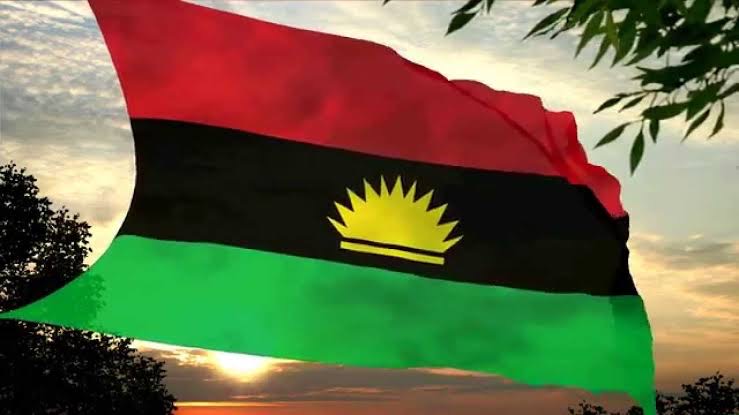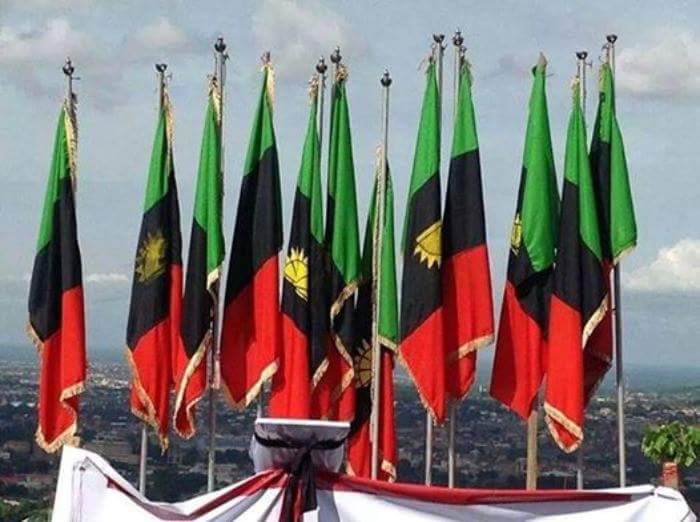By Olakunle Agboola – lt is more than 45 years since the end of the civil war, which the rest of us fought primarily against our Igbo brothers in the Eastern part of the country. And more than 45 years on, the cry of marginalization of Igbo in the Nigerian polity is getting rather shrill for comfort. Many arguments have been advanced, ‘’proofs’’ produced and threats made by a section of Igbo leadership in agitation against the perceived marginalization of the race unlike any other ethnic group has so far made.

We are not inclined to be sentimental in this analysis. If we must address the issue of Igbo marginalization realistically, a pragmatic view must be taken of the entire scenario of the condition of Igbo people in Nigeria.
Before the civil war, Igbos were everywhere, aggressively pursuing their businesses and carving a niche for themselves. They were everywhere in Nigeria, unfortunately, they created images of themselves and the race which gave concern to many other tribes and nationalities across the country. The fierce pursuit of money became the standard by which the Igbo man was known. Fortunately for the Igbo, it earned them not only money but also dominance in the commercial sector across the whole country.

Probably, this success engendered envy and resentment in virtually every community that was not native to the Igbo man but where he became the dominant business consideration. This sad image was translated into a portrait of the Igbo man in politics, which was essentially no different from the Igbo man in business.
In the Southwest, the people appear to be equal to the competition with the Igbo and as a result, rather than the Igbo constituting a threat to the west, they became a catalyst for competitive business activities. That competition also became fiercely visible in the Yoruba/Igbo political milieu. Thus the political competition between both, although not always germane, became a standard procedure in the political inter-relationship with the Igbo man in relationship to the conservative North.
The suspicion between an average Northern business/political operator vis-à-vis the aggressively pragmatic Igbo man translated to mutual distrust, but both decided that it was in their interest regardless, to team up politically in order to contain the Southwest.
From 1960 till date, the fundamental thrust of Igbo political alignment has been to work with the North and stay in power for whatever reason they can give. However, what has happened in that relationship is that Igbo politicians in the period of 50 years have been the primary nationality that has assisted the conservative Northern political oligarchy to consolidate itself in power which it holds with a vice grip. Unfortunately for both Nigeria and the Igbo man, this arrangement is completely unbalanced and unnatural.
It is the reason we have consistently witnessed the increasing, vicious cat and mouse game between the North, which controls all the vital structures of central government, and the Igbo aspire to the same control but have discovered that they have for fifty years not gone beyond aspiring. Necessarily, that is frustrating.
In the bizarre game of sustaining itself in absolute control of political power at the centre, the North has consistently succeeded in playing the Southeast against the Southwest. Whereas it must be admitted that efforts had been made and are still being made by enlightened South-Eastern and South-Western political leaders to break the jinx of their inability to work together, the conservative elements on both sides of the divide have always succeeded in frustrating unity between these two progressive nationalities of Nigeria.
Examples can be found in the failed attempts of 1959, 1964 and 1982 when strenuous efforts were made to forge unity between the Southwest and the Southeast in order to break the Northern monopoly on power.
At this juncture, we must be able to distinguish between marginalization and neglect. We are all guilty of the neglect that the Federation had imposed on the Eastern part of the country since the civil war, which must be redressed. But the Igbo people are in no way marginalized in the essential business and economic structure in the country except they want us to believe that what they are up to is to dominate and monopolize those sectors. In this aspect, it is doubtful if they can succeed.
Politically also, it is misnomer to say the Igbo are marginalized. The truth is that since the civil war, they have been unable to ascend to the presidency essentially as a result of the Federal political structure, which the conservative Northern political oligarchy has built.
In this case, it is unreasonable to talk marginalization when the truth of the matter is that a structural defect has created a bottleneck that makes it difficult for an Igbo man to become President, at least for now. One would have thought that what Igbo brothers should exert energy on at this point in time is the restructuring of Nigeria to create a level playing field for all the nationalities to be able to seek and occupy the highest seat of political power at the centre.
This is the Kernel of Chief Emeka Ojukwu’s position and it is the centre-piece of all other ethnic nationalities who are at a disadvantage with the current structure on ground. It will be of great deal to look inward and focus energy on the development of Igbo brothers rather than fuelling social media war. Let us harp more on a restructured Federation in which all of us will experience equity, justice and fair play.
Kindly follow us on twitter:@AfricanVoice2








